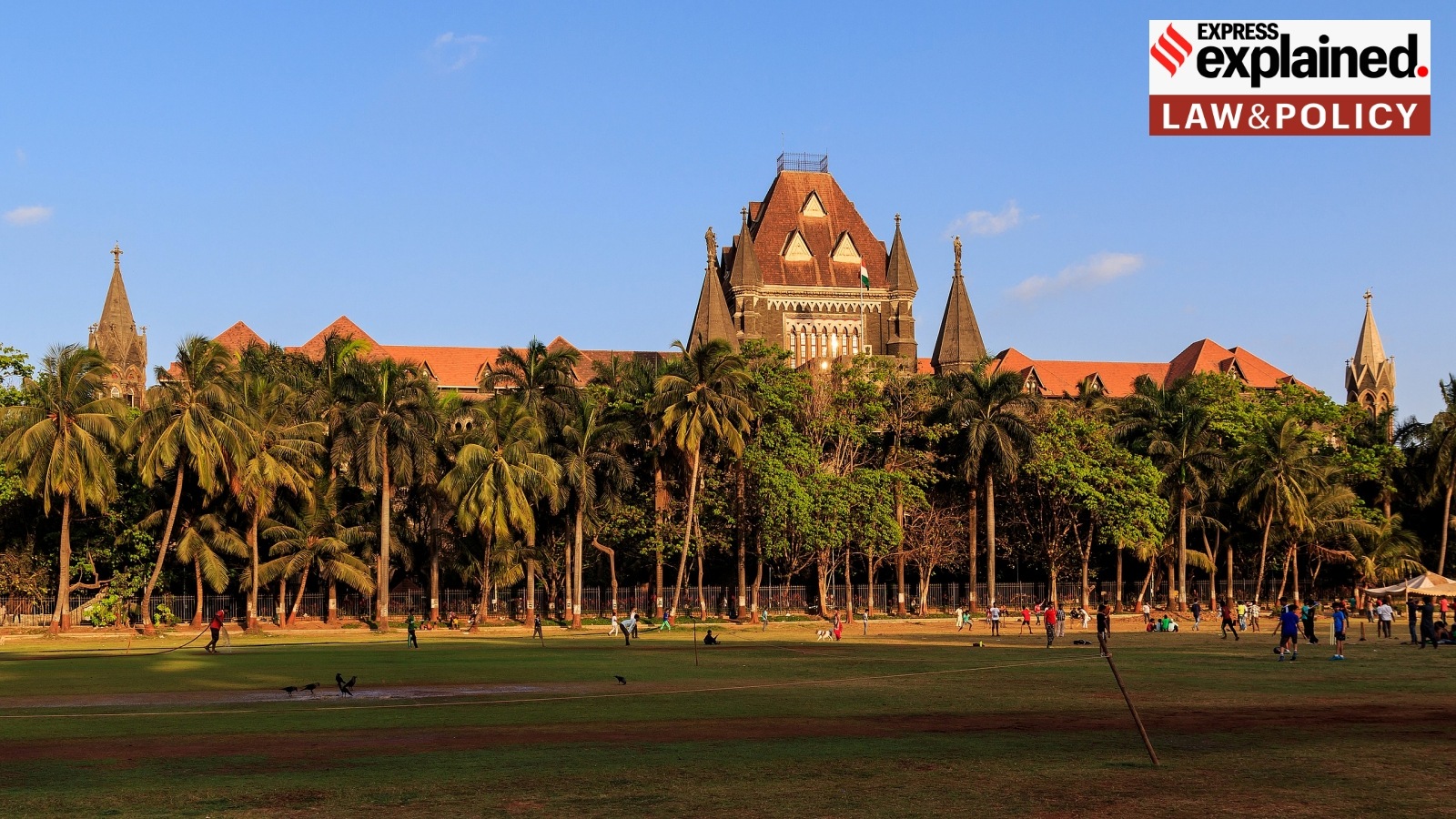It relied on, and expressed “full agreement” with, the 2022 judgement of the full Bench of the Karnataka High Court that validated the state government’s hijab ban in government colleges.

Here is all you need to know.
The dress code
The Chembur college issued a new dress code in May this year, which was to come into effect in the academic year beginning in June. This came after the college saw controversy last August, when several junior college girls wearing hijabs were denied entry for alleged non-compliance with the prescribed uniform.
The new dress code clearly stated that burqas, niqabs, hijabs, or any religious identifiers such as badges, caps, or stoles, will not be permitted inside the college. The dress code prescribed half and full shirts with trousers for boys, and “any Indian/ western non-revealing dress” for girls.
Students’ contention, administration’s response
Nine aggrieved women students approached the HC, terming the college’s instructions “arbitrary and discriminatory”. They claimed the college had “no power and authority” to issue such restrictions, and argued that the niqab and hijab were an “essential religious practice” as per the Quran and Hadith, integral to their religious belief.
The students said that the college’s restrictions are “impeding their access to education” and violating their fundamental rights under Article 19(1)(a) (Right to Freedom of Expression) and Article 25 (Right to Freedom of Religion) of the Constitution. They also claimed the decision was in violation of University Grants Commission (Promotion of Equity in Higher Educational Institutions) Regulations, 2012 meant to increase access to higher education for SC,ST, OBC and minority communities.
The college administration, however, argued that the dress code was applicable to all students, across religious and community lines. It said that the objective behind the rules was to not reveal students’ religion, and relied on the 2022 judgement of Karnataka High Court which stated that donning the hijab or niqab was “not an essential religious practice” for women professing Islam. The college also said that this was an internal matter, and a part of its right to maintain discipline.
Story continues below this ad
Bombay HC judgement
A division Bench of Justices Atul S Chandurkar and Rajesh S Patil held that the dress code issued by the college was in “larger academic interest”, and “[did] not suffer from infirmity so as to violate provisions of Article 19(1)(a) and Article 25 of the Constitution”.
“The object behind issuing the same is that the dress of a student should not reveal his/her religion, which is a step towards ensuring that the students focus on gaining knowledge and education which is in their larger interest,” the bench stated.
The Bench also rejected that the “donning of a hijab or niqab is an essential religious practice of petitioners”, saying that except for the English translations of Kanz-ul-Iman and Sunan Abu Dawud (Collection of Hadith), there is no material was placed to support the claim.
The Bench held that since the instructions issued were “applicable to all students irrespective of their caste, creed, religion or language”, they did not violate UGC guidelines. It held that between competing rights of a student to choose a dress of her choice, and an institution to maintain discipline on its premises, an individual cannot seek to impose her rights against the ‘larger rights’ of the college.
Story continues below this ad
“This is for the reason that students are expected to attend the educational institution to receive appropriate instructions for advancement of their academic careers. The insistence for following the dress code is within the college premises and the petitioners’ freedom of choice and expression is not otherwise affected,” the Bench said.
Agreement with Karnataka HC judgment
Justice Chandurkar, who authored the judgement, expressed “full agreement” with the view expressed by the full Bench of the Karnataka High Court in 2022, which stated that the “prescription of a dress code is intended to achieve uniformity amongst students in the school/college so as to maintain discipline and avoid disclosure of one’s religion.”
The Karnataka HC had held that “the dress code when prescribed for all students was intended to treat them as one homogeneous class so as to serve constitutional secularism”.
This verdict, however, is currently under challenge at the Supreme Court. In October 2022, a two-judge Bench had delivered a split verdict in the case, which has now been referred to a larger Bench. The Bombay HC verdict too is likely to be contested before the Supreme Court in due course.







































